Baseball History Comes Alive Now Ranked #2 by Feedspot Among All Internet Baseball History Websites and Blogs!
Guest Submissions from Our Readers Always Welcome!
THE BASEBALL HISTORY COMES ALIVE BLOG
Please note: As we compose new blog entries, we will now send each one out to all our subscribers as we post them. Here’s a link to see the entire Blog Archives -GL
May 18, 2021
New Blog Topic: CURT FLOOD AND THE HALL OF FAME
On numbers alone, former Cardinals outfielder Curt Flood does not belong in the Hall of Fame. It’s true that Flood was an excellent ballplayer, a fine defensive centerfielder and one of the stalwarts of the great St. Louis Cardinals teams that went to the World Series in 1964, 1967 and 1968. He also seemed to get better as he aged, hitting over .300 in six of his final nine full seasons, giving him a .293 lifetime mark. But there’s never really been a strong push to get Flood into the Hall . . . except for one thing.
It was Curt Flood who opened the proverbial can of worms that eventually led to the abolition of the reserve clause and free agency for baseball players. Here’s a quick review of what happened. The Cards won the World Series over the Boston Red Sox in 1967, then were upset the next year by the Detroit Tigers. In those two regular seasons, Flood continued to be a star with batting averages of .335 (a career-best) and .301, while playing his usual stellar defense. He rarely missed games and was just 30 years old, having joined the Cards in 1958 at the age of 20 following cups of coffee with Cincinnati the two previous seasons. 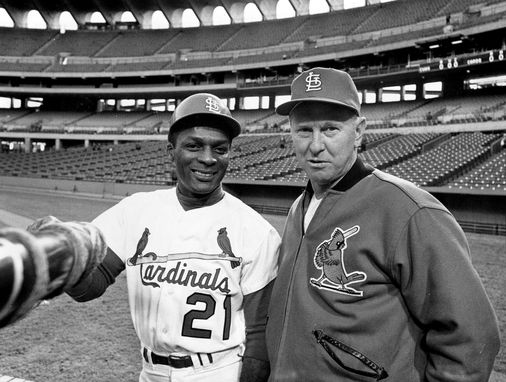
Then after the 1969 season, when Flood hit a solid .285, the team dropped to fourth place with an 87-75 record. Those controlling the ball club felt the great run that began in 1964 was coming to an end and decide to do some rebuilding. In October they pulled the trigger on a seven-man trade with the Philadelphia Phillies. One of the players being sent to Philly was Curt Flood. Thanks to the reserve clause at that time, players had no choice when they were dealt. That is until Flood came along. In a move that shocked everyone, the reluctant centerfielder said, flat out, that he wouldn’t go. Here’s how he put it.
“I do not feel I am a piece of property to be bought and sold irrespective of my wishes.”
Flood held his ground and the trade was made without him. Of course, he couldn’t return to the Cards, so his career effectively ended at age 31 if you don’t count a 40-game attempt at a comeback with Washington in 1971. He took the legal route and the case went all the way to the Supreme Court where he technically lost. But what his refusal to be traded did was put the wheels in motion which eventually led to the advent of free agency in 1976 with Marvin Miller leading the fight. Today, Flood is somewhat a forgotten figure in that fight.
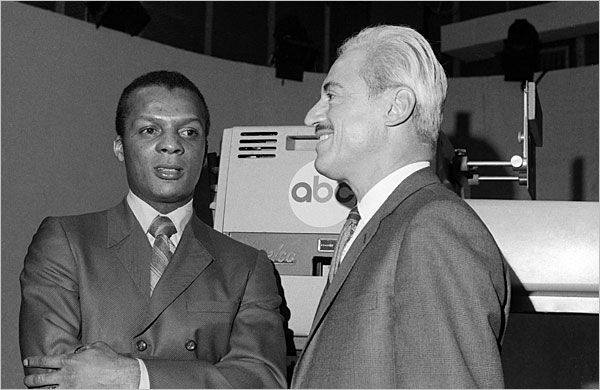
The Hall of Fame, obviously, is essentially for baseball’s best players, though there’s always a debate about who belongs and who doesn’t. But it also includes those who have contributed to the game in other ways, including writers and executives. Even former commissioner Bud Selig was voted in despite the fact that he turned a blind eye on steroid-fueled players because he felt home runs were bringing fans back after the disastrous strike of 1994. But when it comes to anyone who bucked the game, who went against the owners to help the players, well that’s another story. Many felt that Marvin Miller, the father of free agency, belonged in the Hall years ago, some calling it a disgrace that he wasn’t. He was finally voted in last year by the Modern Baseball Era Committee, eight years after his death in 2012 at the age of 95.
But what about Curt Flood? Last week I saw a story by Ken Davidoff in the New York Post that detailed a #FloodTheHall movement to hopefully help get Flood inducted for the sacrifice he made that eventually led to the dissolution of the reserve clause and free agency. Flood, unfortunately, died in January of 1997 at the age of 59, but his widow and son are taking up the fight, which many in baseball feel is a worthy one.
This time it’s the Golden Era Committee that is voting. There will be just 10 candidates chosen and if Flood makes it to the ballot he’ll need 12 of the 16 total votes to be elected. As his son, Curt, Jr., told Ken Davidoff, “The timing could not be any better. It’ll be another five years if he doesn’t get on the ballot and is not elected until it comes up again.”
It has now been 50 years, a half-century, since Curt Flood took the field for the last time. Had he not refused the trade to Philadelphia he may have had four or five good years left. But he sacrificed that for something he believed in strongly. Marvin Miller told him he didn’t have a chance to win his lawsuit and even if he won he’d never get a job in baseball again. Flood asked Miller if he continued the fight would it benefit other players. Miller said, “I told him yes, and those to come.”
And it did. Today most baseball players who last just a few years in the league can retire as millionaires. The top players are multi-millionaires many times over. In fact, when the Yankees Gerrit Cole signed his huge, nine-year, $324 million dollar contract he made it a point at his introductory press conference to thank Curt Flood – and others who fought baseball on the side of the players – for their efforts. And, without a doubt, it was Flood who made the biggest sacrifice of them all.
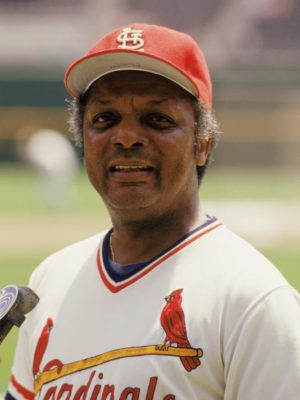
Does Curt Flood belong in the Hall of Fame? If he hadn’t refused the trade and played another five years or so, he may well have been one of those candidates debated about for years and eventually elected by one of the various committees voting on older players. As it stands, he was a fine player who gave up those final years for a principle that he held near and dear. The result was free agency and it soon spread to the other major sports.
So does he belong in the Hall of Fame? I would say he does, right alongside Marvin Miller. And today’s players, and those to come, should never forget him.
Bill Gutman
As always, we enjoy reading your comments
Here’s a link to see the entire Blog Archives
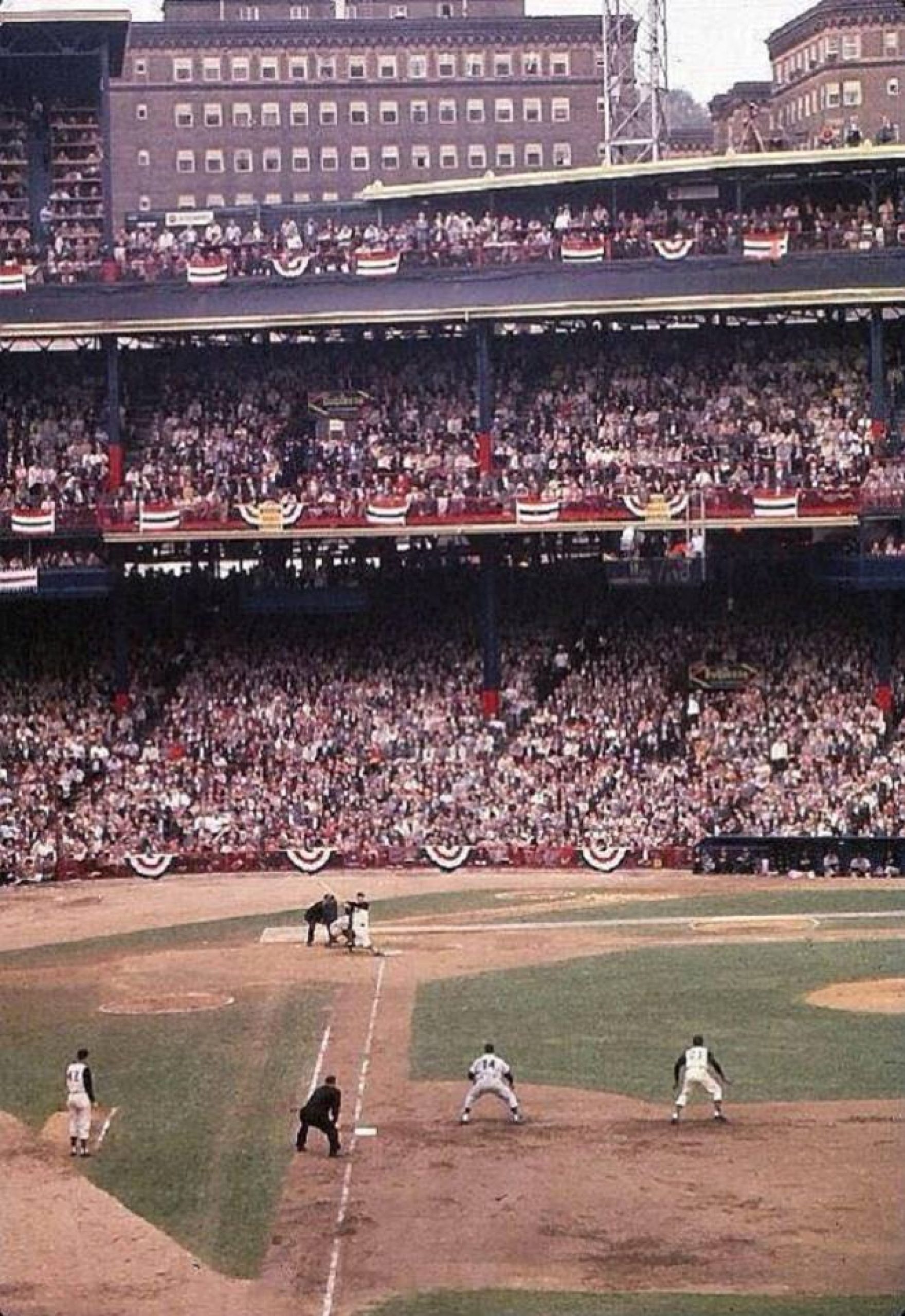
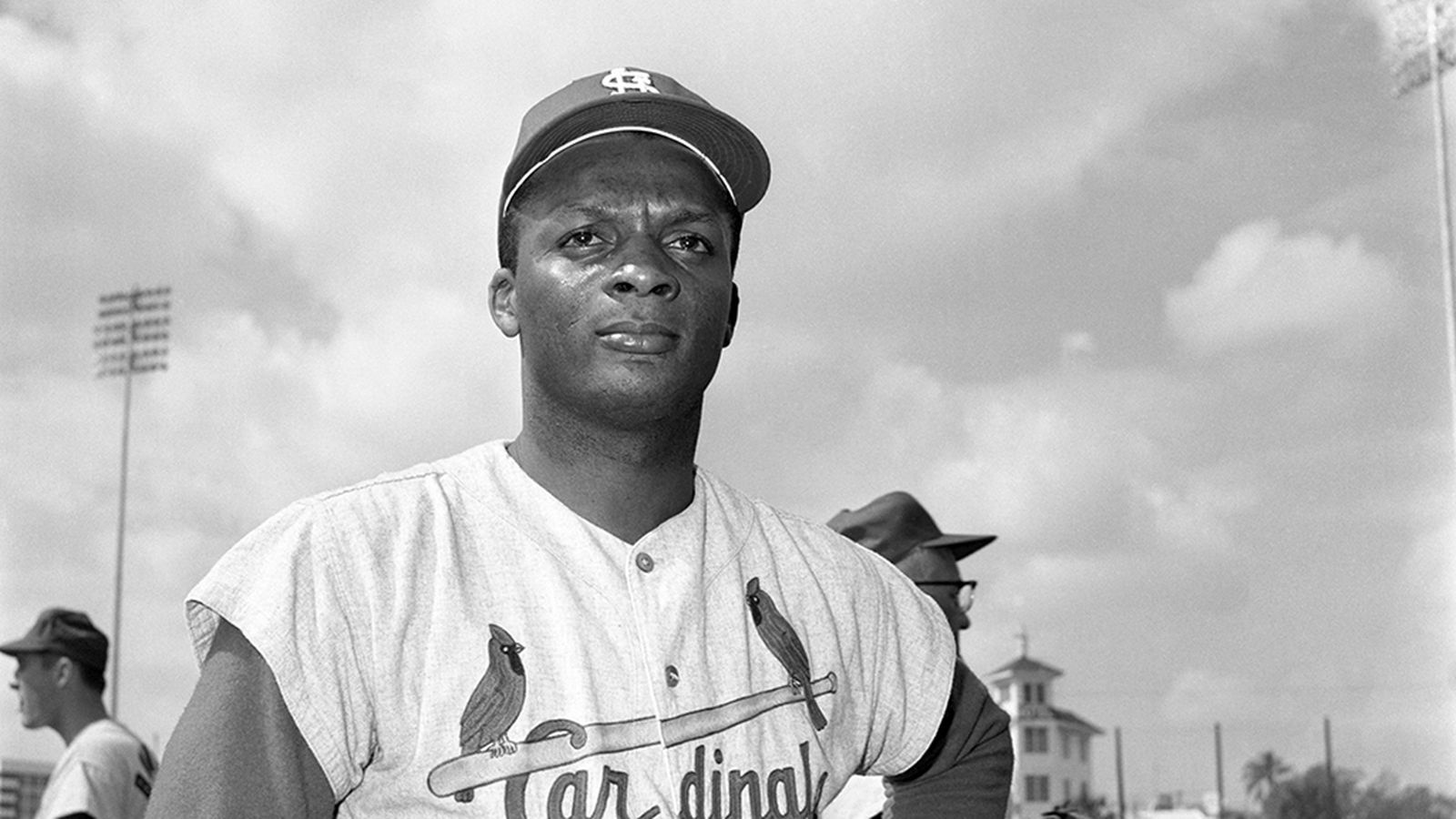
Great article, Bill.
Marvin Miller gets inducted finally this year (2020 vote) as a “contributor” to the game.
Without Curt Flood, who knows what would have happened. His playing career doesn’t hold up to HOF eligibility, but for courage and contributions to the evolution of the game, he deserves the spotlight.
I still have the SI article that was an excerpt from his 1971 book, “The Way It Is”.
Maybe have a special section honoring Curt Flood for his sacrifice to improve conditions for players, but I disagree with induction per se. Though Flood was the pioneer, Andy Messersmith also went out on s limb, playing a whole season without a contract, in order to test the reserve clause.
I didn’t mean he should be inducted as a player, Dave, but maybe as a contributor with a mention of his playing career. Messersmith may have played a year without a contract, but then got to finish his career. Flood basically gave up his career at age 31 for continue his fight against the reserve clause. He lost quite a bit more.
Right, Paul. I wasn’t saying he should be inducted as a player, but more in line with Miller as a contributor. He did sacrifice a few prime years for a principle and got very little out of it. His post career life wasn’t all that easy and he probably would have had more choices available to him if he went to the Phillies and finished out his playing career. That should count for something.
Bill
That should be per se , not per season. Spellcheck. Jeez.
Sorry guys. Some of my message didn’t go through. I don’t think Flood should be inducted into the HOF, based on his struggles in battling the reserve clause. He should be recognized for it, but not to that level, in my opinion. Perhaps a special section in the museum. Andy Messersmith went out on a limb too, playing a whole season without a contract. A big gamble, for should he have gotten injured, he would have been out of luck. Flood’s book, “A Well Paid Slave”, is a good read, if you can find it.
As I said above, Dave, I don’t think you can compare what Messersmith did with the sacrifice Curt Flood made. That said, he certainly could go into the Hall as Marvin Miller did, not as a player. It was Flood who started the whole ball rolling toward free agency, which also ultimately spread to other sports making most baseball, football, basketball and hockey players millionaires or multi-millionaires. He really should not be forgotten and the Hall is one way to make sure he won’t be.
Bill
I see your point Bill, and I do respect what Curt Flood endured. Marvin Miller went in under the executive category and even that took years. If Flood is inducted under that, or a similar category, I could see that. I would be curious if any other player that didn’t become a manager was inducted in some other category other than player.
If you think this is a hot take, how about this? What if Jackie Robinson had not been as skilled on the field as he was and put up just mediocre numbers? Would he have been inducted as the first to break the color line and stay, despite his numbers? Or does his above average playing career put him in if he hadn’t been the first black player to break in and stay in the majors?
Hey Dave. I can think of one very good player who has made the Hall in another category. Joe Torre was an excellent player, but not quite HOF caliber. But he did make it as a manager for his success with the Yankees. As far as Jackie is concerned, being a pioneer player who went through hell certainly helped him. Thanks to the color line he got a late start and his numbers taken by themselves probably aren’t HOF caliber. But he was certainly a dynamic and talented player and a winner on the ballfield. He may well have made the Hall anyway.
I’ll correct it for you Dave.
Wonderful article Bill. I agree that Curt Flood opened the “Flood Gates” to the generations long wealth of today’s baseball players. It was nice of Garrett Cole to mention Flood in his press conference when he joined the Yankees. However, thanks does not leave a legacy. Curt Flood deserves to be in the Hall of Fame. I wonder how many Hall of Fame votes Catfish Hunter would’ve received had he not played his last season in Oakland without a contract? Had Curt Flood not got the ball rolling, Messersmith, McNally or Hunter would not even be in this conversation. Thumbs up to Flood in the hall. Thank you for another wonderful article-Scott
Thanks, Scott. I think we’re on the same page here. Flood is the one who made the real sacrifice. By refusing a trade to the Phillies he effectively ended his career when he still had some good years left. Had he played another five years he may well have been in the Hall discussion as a player. But he certainly deserves some kind of recognition since he really stands side by side with Marvin Miller as the two who did the most to bring on free agency.
Bill
Another player I think should be in for contributing to the game is Tommy John. How many TJ surgeries are preformed now? It prolonged his care, and saved many more.
Tommy John surgery has certainly become an epidemic, Bob. I believe some 25 percent of major league pitchers have had it at some point. I personally think Tommy John should be in by virtue of his long career and 288 victories. Perhaps the surgeon who pioneered the surgery should also be in the Hall. Years ago, the great pitchers not only started what they finished quite often, but pitched well over 200 innings every year, sometimes 300 innings, and never ruptured the elbow ligament. You would think MLB would convene those still alive and ask them how they trained and pitched, and try to figure out why so many pitchers today, on pitch counts and innings limits, and throwing very few complete games, continue to need the surgery. But now they seem to just accept it as part of the game.
As an aging curmudgeon, I want to play Devil’s Advocate: Free agency is responsible for two things very much resented by fans — especially longtime fans, myself included:
First, stars get ridiculous salaries compared to the fans who pay for them. As a Nationals fan, I recall calculating that Bryce Harper, with his new contract from the Phillies, would be paid more than $13,000 each and every day of the contract. Also, my mind is still reeling from reading that Derek Jeter had a $27-million home built for himself in Florida. This fan has the feeling that those kinds of numbers put players not so much in another tax bracket as on another planet.
Second, team loyalty his almost completely disappeared. Front Office management drafts a great prospect and wastes no time telling us how wonderful he is going to be. As he plays and gets experience, he does indeed meet expectations. Management hails him as “The Face of the Franchise.”
Examples: At the end of the 2018 season, the Nationals had a trio whose talent and performance, as a group, was as good as any trio on any other team: Bryce Harper, Anthony Rendon, and Stephen Strasburg. A few weeks after the 2018 season ended, Harper was gone. A few weeks after their World Championship season ended, Rendon was gone. What happened to the faces of the franchise? Currently, the Nationals have a third baseman producing .270/.323/.348 offensively, and an outfielder whose performance is .226/.315/.435. Do you think Rendon and Harper could be helping if they were still Nationals?
So — free agency has done great things for players. For fans, not so much.
I know what you’re saying, David, and I basically agree with you. Teams price gouge fans regularly — from tickets, parking, food and merchandise. It’s all overpriced, and the owners make a fortune. The huge, long-term contracts usually end up a disaster, like Robinson Cano’s and more recently, Albert Pujols’. I have a friend, a longtime fan like us, who says the money is built into the team’s budget and they can afford to take the hit on the back end. But the huge contracts have hamstrung some teams. Unfortunately, it’s more or less the same way in other sports and other areas of the entertainment business. And that’s what baseball has become — entertainment. Team loyalty doesn’t really exist anymore, neither by the owners or players, who usually spring for the biggest offer. Heck, Tom Seaver was perhaps the first player to be called The Franchise, and the Mets dumped him in an ill-conceived trade in 1977 because he wanted more money. They say years ago people rooted for the players, because they knew that basically the same guys, especially the stars, would stay with their teams year after year. Now they root for the uniform because they never can be sure which players will be wearing it .
Hi Bill,
As Billy Martin advised in an ages-old beer commercial, “I feel very strongly both ways.” (He devoted an entire career, after all, to avoiding arguments don’t you know.)
Considering the many white-papers available on behalf of Curt Flood’s induction, I agree with those who think yours is among the very best: Flood had the guts to turn his back on a pretty lucrative (albeit one-year) professional contract in the name of principle, and now that Marvin Miller has finally squeaked through to the Hall, it’s only right that Flood join him there. That’s your pitch, essentially, and it does sound persuasive, at least in the first reading.
Of course Miller, as executive director of the players’ association, was honored for his tenacious and ultimately winning efforts in enriching the lives of major leaguers — literally speaking. He did superbly the job for which he was elected, in other words, and in the course of his many battles with the owners he left a defining and indelible stamp on a game now worth hundreds of millions to athletes whose predecessors had to be satisfied with tens of thousands in the hey-day of guys like Curt Flood.
And, It may well be that without Miller leading the charge against owners there wouldn’t have been a Catfish Hunter or an Andy Messersmith, i.e., guys whose arbitrations were won in the ’70s because 1) Charles Finley breached his player’s contract and 2) Messersmith had the guile to sit out a season in order to avoid the trap of what was then a one-year reserve clause. But Flood lost his case in the Supreme Court, as you acknowledge, and the two pitchers mentioned here prevailed before Arbitrator Peter Seitz on theories different than the one argued by Flood.
When Curt Flood came back in 1971 after a year-long layoff, as he had a right to do, he played a few weeks of lackluster ball for the Washington Senators and promptly quit. He wasn’t forced out of the game by ownership, in other words; he left of his own volition. His heart wasn’t in it, maybe; he just didn’t have it any more; or perhaps his resentment toward baseball’s hierarchy interfered with his dedication to the sport — I really don’t know. But at least we don’t have to speculate whether Flood’s excellent career as a speedy outfielder in the big leagues would have been extended another 5 or 6 years if only he had been given a chance to stay in the game. He was given that chance, and it didn’t happen.
Curt Flood was a solid and at times spectacular player for the St. Louis Cardinals. He hit well, as you point out. Along with Roger Maris and Lou Brock, he helped give the Cards one heck of an outfield, and he did enjoy three trips to the World Series.
If his on-the-field accomplishments should be considered sufficient for enshrinement, then one would hope the Golden Era Committee’s upcoming votes will finally reflect that. As you have said, however, Flood’s numbers alone don’t call for his induction. Somehow, they just haven’t improved with the passage of time. His “contribution to the game,” an official criterion too often overlooked by today’s electors in my opinion, should definitely be considered. Having done that, however, I believe the true legacy which Curt Flood left to our national pastime was somewhat less than meets the eye of today’s viewer.
It’s a close call, as Billy Martin would undoubtedly admit — if only he could. In your signature style you have made yet another articulate and persuasive case, Bill Gutman; but this one, in the light of all historical facts, isn’t quite convincing.
Then again, take heart! I don’t have a vote.
All the best,
/s/ Hot Air From The Hot Stove
Fun stuff as usual, Michael, and well thought out. I still feel that Flood was the player who made the major sacrifice and, as a result, lost the most. But it wasn’t that he wasn’t given the chance to stay in the game, he chose not to stay in the game and be sold and traded without any say. He was a bright guy who never got a chance to return to baseball in another capacity because of what he did. And it was his courageous stand that really started the ball rolling with Marvin Miller leading the charge. If he just finished out his career without challenging the reserve clause he probably would have been one of those borderline players that some would want elected to the Hall and others wouldn’t. But there should be some way for the Hall to honor him so that what he did is remembered. It’s a tough call because there’s really no category for him unless he is considered a contributor, as with Marvin Miller. And you know that many felt it was a real disgrace that it took so long for Miller to be voted in, some eight years after his death. We could go round and round with this, but what the heck, it’s baseball and, as I said, this is some of the fun stuff despite its seriousness.
Bill
I always found it a tad bit interesting that Curt Flood’s initials designated his position on the baseball field, ala Roger Freed and Snuffy Stirnweiss among others. As to his contribution to baseball beside his numbers I think it is admirable that he wanted to be free to negotiate his playing services with any team he choose and he gave up a year of his career to do so, although at the time he did not know how long he would not be playing. Marvin Miller did not want free agency per se, he realized that if every player was a free agent every year it would saturate the market and keep salaries low. What he wanted was a union that through collective bargaining, could control the rules of free agency. Think of the chaos in baseball if every year every team had to negotiate a contract with every major or minor league player in order to establish an organization. Miller’s idea of letting owners tie up minor league players and major league rookies for a specified time and allow for long-term contracts beyond the term of the collective bargaining agreement (what union allows that!) is pure genius. Owner and player greed, designed by Miller, is good for them but not for fans. Flood’s contribution to baseball was a fight for individual rights, Miller’s for group rights. Miller won out, but had Flood’s premise won out baseball would not likely be in the mess it is today with the fan disenfranchised. Flood belongs in the Hall.
Hi Kevin. Good stuff with players’ initials also indicating their defensive positions. I don’t think anyone would want every player to be a free agent every year. That certainly wouldn’t work and the multi-year, long term contracts took care of that. With the basic agreement up this year, I’m sure the players will fight for more liberal free agent rules, especially in regard to service time. I do agree with you about greed being on both sides. Of course, if the owners are making fortunes with elevated prices and huge TV deals, not to mentioned overpriced merchandise, the players will certainly want their share since they are the product. As for Curt Flood, if you look at his final six or so seasons, not counting the comeback cameo with Washington, it stands to reason if he just completed his career by accepting the trade, he could well have had another five or six good seasons and may well have been a borderline Hall of Famer as a player. I feel he does belong, but not as a player. I guess he could be considered a contributor or they may even create a special category. He did help change the game. The game today is in a mess in many ways and I believe it’s the longtime fans who feel the most disenfranchised.